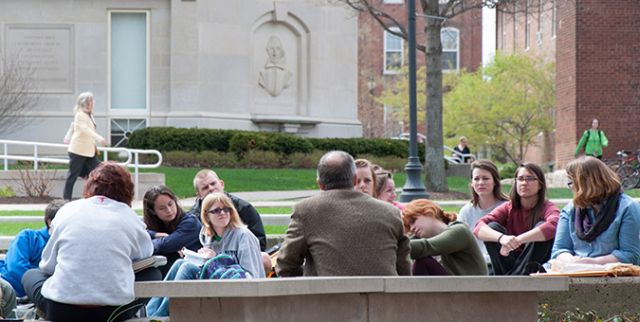
Philosophy Faculty Publications
Comments on 'The Rights of Others: Aliens, Residents, and Citizens'
Document Type
Book Review
Publication Date
2006
Publication Source
Social Philosophy Today
Abstract
We meet as scholars and as educators. Jeremy and Johann have commented on scholarly concerns; I will don my other hat and talk about why Professor Benhabib's The Rights of Others is such an important book for my students. I have assigned it for my fall political philosophy course, which has cosmopolitanism as the unifying theme. Education is local; my students have a certain demographic profile and certain educational strengths and deficits. I will describe them, so you can translate what is appropriate for your own students and what is not. My students are mostly white, middle-class, Midwestern, conservative and Catholic, mostly in the 18-23 year old range. There is little obvious diversity, but a fair amount that's hidden from view. They all wear jeans and tee-shirts, so it takes a while to spot those from Appalachia, those who in varying degrees are in and out of various closets, those who love learning for its own sake. They are good, earnest folks, precariously positioned between adolescence and adulthood.
A colleague of mine likes to say that fish don't see the water they swim in. Her goal as an educator is to help her students see the water they swim in. She wants them to become conscious and uncomfortable about their deeply embedded conceptions of how the world is, and of who they are. She wants them to see their own water as local, rather than assume it to be universal, to see not only that not everyone is like them, but that even they are not what they assume themselves to be. I hope that reading Benhabib's book will make my students uncomfortable, conscious of their privilege, and better able to decode the cultural assumptions and messages that reinforce the invisibility of their water. I will point out three ways that The Rights of Others will help them do this: first, that Benhabib make marginal central; second, that she makes material from other disciplines seriously; and third, that her recommendations are untidy. I hope some of these ways also apply to your own students, and perhaps to yourselves.
Inclusive pages
239-241
ISBN/ISSN
1543-4044
Copyright
Copyright © 2006, Social Philosophy Today
Publisher
Social Philosophy Today
Volume
22
eCommons Citation
Fischer, Marilyn, "Comments on 'The Rights of Others: Aliens, Residents, and Citizens'" (2006). Philosophy Faculty Publications. 132.
https://ecommons.udayton.edu/phl_fac_pub/132
COinS



Comments
Permission documentation is on file.
Citation information for the book: Benhabib, S. The Rights Of Others: Aliens, Residents And Citizens. Cambridge; New York: Cambridge University Press, 2004.